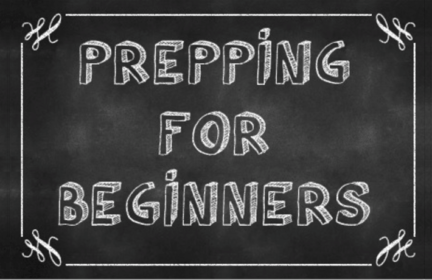Changes for/life in a world with reduced oil accessibility?
I’ve been trying to find (or create?) a big list of approaches/technologies/products/ideas that someone could consider to a) reduce their oil dependence in the present, or b) live life in a future with reduced/nonexistent oil/fossil fuel accessibility.
I want to look at these ideas to consider adopting some now or supporting my community to develop some of the ideas. Below, I’ve given examples.
Also, to be frank, I want a list of ideas to look at when I find myself doomscrolling through peak oil and oil dependence articles. Those articles describe the stakes and the scale of the problem, but at the end of them, I’m usually left thinking “what could I do to address the issue?” That uncertainty about what to do (for me at least) often results in more doomscrolling about the general topic. I want to break a spiral by pulling up a nice big list of concrete ideas for myself and/or my community. (Then once I’ve broken the spiral, I can actually evaluate which ideas are truly useful for me personally. But first, the list to break the spiral.)
So if you’ve got a recommendation for what to learn about or where to go to learn how to be less oil-dependent (whether through traditional approaches, or modern ones, or a mix) I’d be very happy to hear your ideas and resources.
Here’s some of my examples…
- Food preservation: Create a root cellar (attached or detached to the home) to help preserve food without spending energy on active cooling/refrigeration.
- Food preservation: learn about fermenting (sauerkraut, kimchi, sourdough…)
- Food supply/production: Look up local farmers and figure out what products I could potentially purchase without relying on long distance trucking to bring it to my area (and identify what I can’t acquire locally)
- Food supply/production: Learn about household-level gardening techniques that don’t rely heavily on synthetic fertilizers, and make efficient use of hand tools vs power tools (like a scythe)
- Transportation: Live within an e-bike’s range for commuting to most places, and combine that with setting a back-yard solar system for charging the bike (these ideas don’t have to work for everyone, just pass along the ideas that might work for someone)
- Housing: Assess a home’s structure for retrofitting (insulation, passive solar) to reduce the energy inputs needed for heating/cooling.
- Housing: Learn about rocket mass heaters, modern/traditional woodstoves/wood boilers to supply heating energy via a resource that can be grown locally. (learn what it takes to grow a healthy “wood lot”)
- Clothing: Identify local resources and expertise for making and maintaining clothing (knitting and sewing hobbyists, local seamstresses/tailors, sources of fiber to make fabric, potential trade options if there’s no enough )
- General energy: learn about household-level power generation like photovoltaic solar panels and evacuated tube-based solar hot water systems
- General energy: learn about community microgrids to generate (electric) power locally/in a distributed manner
- Societal structure: discuss my concerns with family, friends, community members, and elected representatives
(And if you have website/book recommendations instead of individual ideas, happy to hear that, too!)
-
Comments (12)
-

